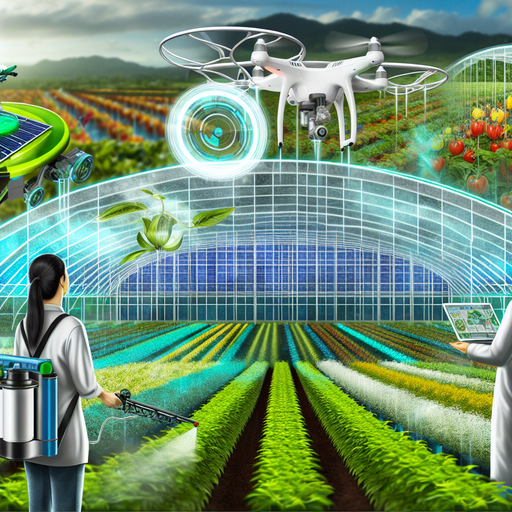In recent years, there has been a significant rise in the use of technology in various industries, including agriculture. Nextcloud, a popular open-source cloud storage solution, has been playing a crucial role in revolutionizing the way farmers manage their operations. In this blog post, we will explore the various applications of Nextcloud in agriculture and highlight some of the challenges that farmers may face when integrating this technology into their workflow.
One of the key applications of Nextcloud in agriculture is data management. With the use of sensors and IoT devices, farmers can collect a vast amount of data related to soil conditions, weather patterns, crop growth, and more. This data can be stored and accessed securely on Nextcloud, allowing farmers to make informed decisions about their farming practices. By centralizing their data on the cloud, farmers can easily share information with other stakeholders, such as agronomists, researchers, and policymakers, to improve overall efficiency and productivity.
Get Nextcloud with 1 TB of storage for just up to €3.99 per month.
Try it now for one month free and risk-free.
Another important application of Nextcloud in agriculture is communication and collaboration. With features like file sharing, document editing, and real-time messaging, Nextcloud enables farmers to collaborate with their team members, no matter where they are located. This is particularly beneficial for large farms with multiple locations or for farmers who work with external partners, such as suppliers or distributors. By using Nextcloud, farmers can streamline communication, share important documents, and coordinate tasks more effectively.
Furthermore, Nextcloud can also be used for inventory management and supply chain optimization in agriculture. Farmers can keep track of their inventory levels, monitor the movement of goods, and optimize their supply chain processes using Nextcloud. By having access to real-time data on stock levels, production schedules, and delivery timelines, farmers can reduce waste, minimize costs, and improve overall logistics efficiency.
While Nextcloud offers numerous benefits for agriculture, there are also some challenges that farmers may encounter when implementing this technology. One of the main challenges is ensuring data security and privacy. As agriculture becomes increasingly digital, there is a growing concern about the confidentiality and integrity of sensitive agricultural data. Farmers must take appropriate measures to protect their data from unauthorized access, data breaches, and cyber-attacks.
Additionally, another challenge is the lack of reliable internet connectivity in rural areas, where many farms are located. Without access to high-speed internet, farmers may struggle to access and update their data on Nextcloud in real-time. This can hinder the effectiveness of using cloud-based solutions in agriculture and may require farmers to invest in improving internet infrastructure in their area.
In conclusion, Nextcloud has great potential to revolutionize the agricultural sector by enabling farmers to better manage their data, collaborate with stakeholders, and optimize their supply chain processes. However, farmers must be mindful of the challenges, such as data security and connectivity issues, that may arise when integrating Nextcloud into their operations. By addressing these challenges proactively, farmers can harness the full potential of Nextcloud to drive innovation and sustainability in agriculture.
